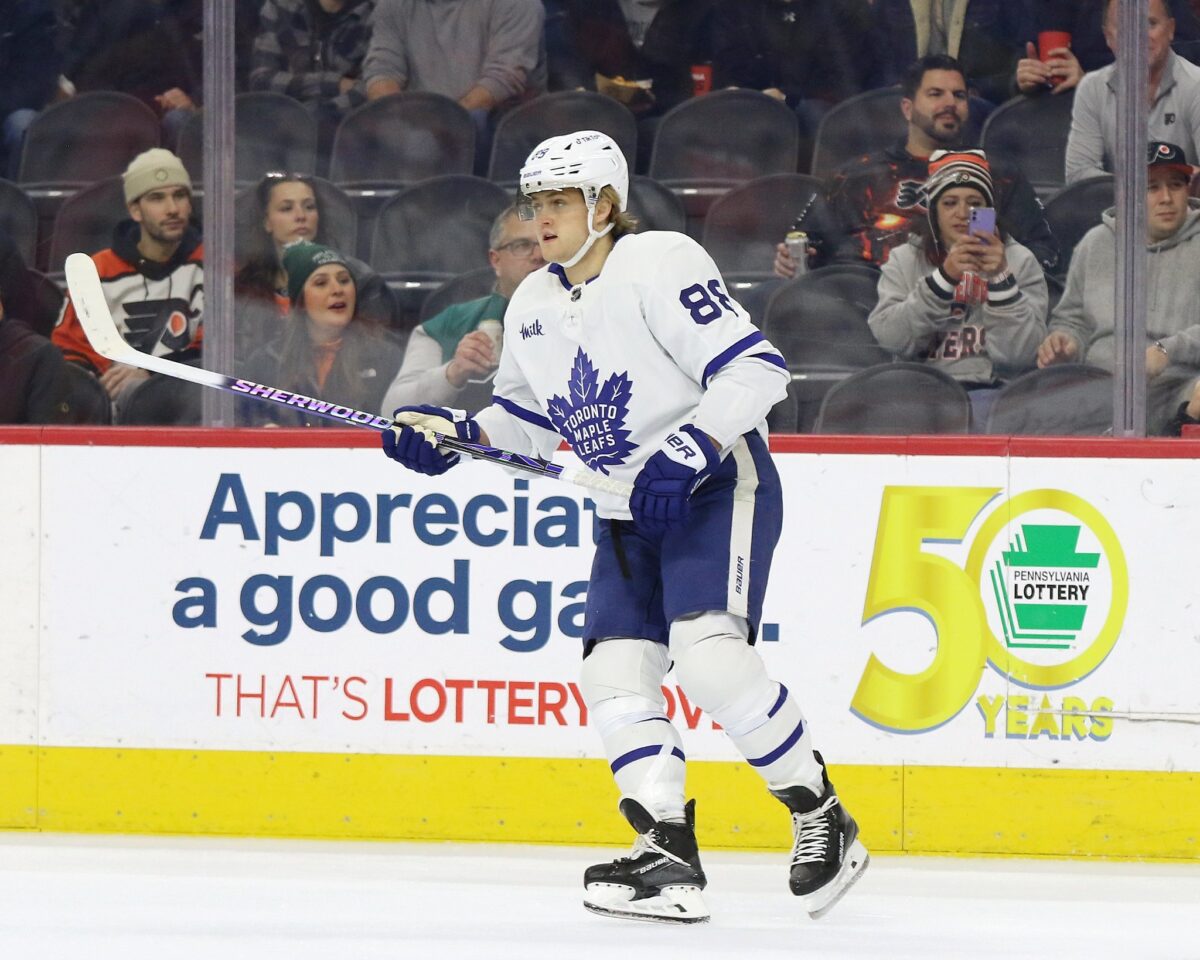For the Philadelphia Flyers this season, they’ve scored just 2.83 goals per game, which ranks in the bottom 20 in the NHL. Considering forward Owen Tippett’s shot-heavy nature, trading him might not come easy for the Orange and Black. With that being said, he is in the last season of his contract and likely due for some big money. Since the Flyers are still in a rebuild, they should consider trading him instead of giving him a big extension.
Tippett’s Play This Season
Through 41 games, Tippett has 14 goals and 10 assists for 24 points. That’s about on par with where he was last season when he had 27 goals and 22 assists for 49 points in 77 games. The 24-year-old not progressing in the goals or points department isn’t necessarily ideal, but it doesn’t define who he is. Has he looked better when actually watching his play rather than looking at raw numbers?

As mentioned before, Tippett likes to shoot the puck, but it’s a bit of an issue when it’s more than anyone on the team and he isn’t scoring consistently. Shooting at a no more than serviceable 9.7 percent rate, he is essentially league average in that regard when he should be far above that considering his talent. He has a good shot and is one of the fastest players the Flyers have, but he tends to shoot when he should probably look for a better play. That’s not always a bad thing, but it is something to note.
To elaborate a bit, that can sometimes be excusable, but he typically has a top-six role on the team — those forwards usually convert at higher rates. He has arguably seen a step back from where he was last season, so that might be a bit concerning for the Flyers if they want to think about extending him.
Tippett has some intangibles that make him a good player, but his strong suit hasn’t quite been his defense, which is important if he’s not shooting well. Again, many teams can find value in a player like this if they have the tools to maximize his potential — being a player isn’t just about shooting percentage and defense, but rather, just his flaws.
As a middle-six plug, he’d be a valuable player for a playoff team. He has had to be the star player on many of his lines frequently, making it more essential that he has to be atop his game instead of relying on teammates to make him better. When he is not the main source of offense, he has played a little better.
On rushes is where Tippett flourishes the most. He has exceptional speed which makes him a dangerous player in those areas. He can be a crafty player and is a solid complement for a team, but doesn’t project to be a true star. Considering his expiring status as a restricted free agent (RFA) and the fact that the Flyers will need to utilize their salary cap well moving forward, they might want to pass on an extension.
Tippett’s Next Contract
In predicting Tippett’s next contract, there isn’t a lot to go off of other than pure speculation. In doing so, the increasing salary cap of the NHL has to be considered. Forward William Nylander of the Toronto Maple Leafs recently signed an eight-year, $92 million contract. While he is having an incredible season, a contract of that magnitude implies that some players could be signing for some big money this offseason. That is likely not limited to Tippett if he were to re-sign.

Considering Tippett is on the last season of a two-year, $3 million contract in total value, he’s probably seeking a long-term extension worth a decent chunk of money at this point. As a middle-six player in most ideal lineups, the potential for him to improve with him being just 24 will give him a bigger paycheck than what he has actually shown.
For Tippett, a max contract of eight seasons would be ideal for him financially, but the Flyers might not be willing to do that if he stays. Since he is a younger player, the longer he signs, the more it will cost. To meet in the middle a bit, a four-year, $20 million contract would probably be fair. If it were closer to eight years, the average cap hit would be closer to $6 million.
Related: Flyers’ 2024 Restricted Free Agents Contract Projections
Both of those are a bit much for what Tippett is providing now, but the percentage of the overall salary cap that his number takes up would decrease for each season that passes. Essentially, the best value would be a few seasons into the deal, rather than right when it is signed.
The Flyers could also take Tippett to arbitration and he could agree to a one-year deal, but a long-term contract makes more sense. There are many possibilities, but a short-term “prove it” contract might be the worst one.
Projecting Trade Value
Teams get desperate in the offseason, and that is something the Flyers know all too well at this point. Though Tippett is at the age where he can still improve upon his game, his expiry status comes with risk. They’d surely get offers for him in a trade, and it might be one where they can help get some draft capital and further the rebuild by creating cap space.
For a return, the Flyers should expect either a mid to late first-round pick by itself or a second-round pick with a decent prospect alongside it. That value for Tippett is more or less what it should be.
The Orange and Black are at an objectively good spot in their rebuild, but that doesn’t mean they should stop selling when necessary. If they get a good offer for Tippett, they should consider shipping him off.
